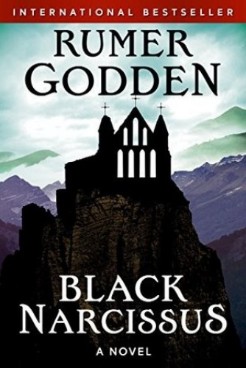The Sisters left Darjeeling in the last week of October. They had come to settle in the General’s Palace at Mopu, which was now to be known as the Convent of St Faith.
Last year it had been called St Saviour’s School, but, when the Brotherhood left after only staying five months, it lapsed into the Palace again. The natives had never called it anything else; they had hardly noticed the Brothers except, when they met them out walking, to wonder how they grew such beards on their faces; their own chins were quite hairless, though they had long pigtails, and they thought the Brothers must be very senseless to grow hair down their fronts instead of down their backs where it was needed to shield them from the sun. There had been only two pupils in the school; one was the General’s nephew and the other the son of his cook.
The General had sent two men to show the Sisters the way and Father Roberts had lent them his interpreter clerk. Father Roberts seemed very anxious about them altogether.
‘What is he afraid of?’ asked Sister Blanche. ‘I think these hills are lovely.’
‘He thinks we may be lonely.’
‘Lonely! When we’re all together? How could we be?’ But outside the town, they did seem a very small cavalcade as they rode away to the hills.
They rode on Bhotiya ponies that were small and thick-set like barbs, and sat swaying in their saddles, their veils tucked under them. They looked very tall in their veils and topees, the animals very small, and the grooms laughed out loud and said: ‘These are women like the snows, tall and white, overtopping everything.’
One man said: ‘I think they’re like a row of teeth. I can’t see any difference between them and they’ll eat into the countryside and want to know everything and alter everything. I was peon at the Baptist Mission and I know.’
‘Oh no, they won’t,’ said a very young groom. ‘I know all about them. These are real Jesus Christ ladies like the Convent ladies here. They only teach the women and children and that doesn’t matter, does it?’
Sister Clodagh rode on in front with the clerk. It was easy to see that she had been on a horse before, and the others watched her enviously as she sat, upright and easy, bending her head to talk to the clerk, sometimes half turning round to see if they were all following. They rode one after the other along the path, but Sister Blanche’s pony kept hurrying to push to the front and Sister Ruth screamed every time it came near her. She was terribly nervous; when her pony flicked an ear at a fly she thought it was going to bolt, and when it tucked its hoof up neatly over a stone, she cried out that it was going to kick; the grooms walked negligently along at the back, laughing and talking, their blankets over their shoulders. Hers was a bow-legged small man in a black fur hat, and when she called out to him he smiled at her, but stayed exactly where he was.
Behind the grooms were the porters, whom they had overtaken already, fifty or sixty of them, some carrying enormous loads; they were gradually left behind and the ponies and the laughing grooms went down and down, into the forest between the hills.
